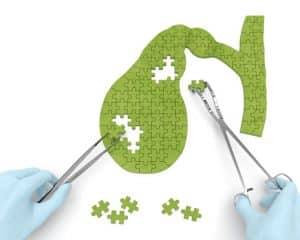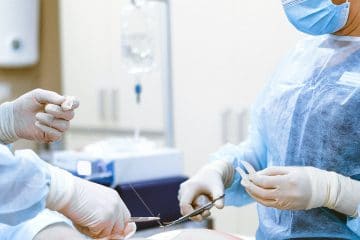Gallbladder Surgery Recovery Time – Overview

Gallbladder Surgery
The removal of the gallbladder, also known as a cholecystectomy, is a very common surgical procedure. The gallbladder is just a tiny sac organ that sits in the upper right corner of the stomach.
Bile, a fluid made by the liver that aids in the breakdown of fatty foods, is stored here. Gallbladder isn’t a vital organ, hence if you already have any issues with it, surgery to remove it is quite often advised.
Timeline
Whether you have a laparoscopic (keyhole) or open gallbladder surgery (cholecystectomy), the time it takes to recover varies.
The majority of people who receive laparoscopic gallbladder surgery are allowed to leave the hospital the same day. Returning to normal activity takes about two weeks on average.
You’ll normally have to stay in the hospital for 3 to 5 days after open surgery, and your recuperation period will be longer.
Returning to normal activities after the gallbladder surgery can take anywhere from 6 to 8 weeks.
You’ll need to arrange for someone to drive you home from the hospital in any scenario.
Someone should also stay with you for at least 24 hours if you go home the same day of your operation, while you may still be feeling the anesthesia effects.
Risks of Gallbladder Surgery
Swollen, lacerated, and painful wounds: This should improve within a few days; routine painkillers such as paracetamol may effectively lessen the discomfort
Feeling sick: You may feel sick as a result of the anesthesia or pain pills you were given, but this should pass rapidly
Pain in your abdomen and upper arms: This is a result of the gas used to inflate your tummy and should pass after a few days. Painkillers can be used to alleviate the discomfort
Bloating, gas, and diarrhea: These can linger for several weeks; Fruits, vegetables, brown rice, and whole meal bread are high in fiber, and with some medications your doctor prescribed can be used to help firm up your stools.
Care at home
• When you’re exhausted, take a break. You will be able to recover faster If you get enough sleep.
• Every day, try to go for a stroll. Start with a longer walk than you did the day before. Gradually increase your walking distance. Walking helps to enhance blood circulation and avoid pneumonia and constipation.
• Avoid lifting anything that will cause you to strain for 2 to 4 weeks. A child, heavy grocery bags, a weighty briefcase or backpack, or a vacuum cleaner are all examples of this.
• Until your doctor says it’s acceptable, avoid intense activities like biking, jogging, weightlifting, and aerobic activity.
• If your doctor approves, you may shower 24 to 48 hours following gallbladder surgery. keep the cut (incision) dry. For the first two weeks, or until your doctor says it’s okay, don’t take a bath.
• When you are no longer taking pain medication and can rapidly shift your foot from the gas pedal to the brake, you may drive. Even if you do not want to travel far, you must be able to sit comfortably for an extended period of time. It’s possible that you’ll become stuck in traffic.
• Most people may return to work or their typical routine after a laparoscopic gallbladder surgery in 1 to 2 weeks, although it may take longer. It would most likely take 4 to 6 weeks for you to return to your normal routine after an open gallbladder surgery.
Looking after your wounds
• If the incision or cut has layers of tape on it, keep it on for a week or until it breaks off.
• Wash the area everyday with warm, soapy water and pat it dry after 24 to 48 hours.
• Staples may be used to hold the cut together. Until your doctor removes them, keep them dry. In most cases, this takes 7 to 10 days.
• Maintain a clean and dry environment. If it weeps or scrapes against clothing, wrap it with a gauze bandage. Every day, change the bandage.
When to get medical advice
If you have any of the following symptoms, see your doctor or go to the hospital:
• Return of your original symptoms
• Severe, excessive or increasing pain
• High temperature of 38C or above
• Persistently feeling sick or vomiting
• Swelling, redness, or discharge from a wound that is getting worse.
• Your skin and the whites of your eyes will turn yellow ( jaundice ).
• Dark urine and pale stools
See Also
Can You Live Without a Pancreas
What is the Function of the Pancreas?
References
https://medlineplus.gov/ency/patientinstructions/000117.htm
https://www.verywellhealth.com/gallbladder-surgery-recovery-4846464

Dr.Sharif Samir Alijla, is a general medical doctor and a well-rounded professional that cares and treats patients from Palestine. I participated in many medical studies and conferences, I've launched a range of community initiatives and taken part in a variety of leadership and change training programs. I worked as an author for many medical websites such as TebFact . I specialized in writing medical articles from authoritative and updated sources in a simple and smooth the way for the reader.



